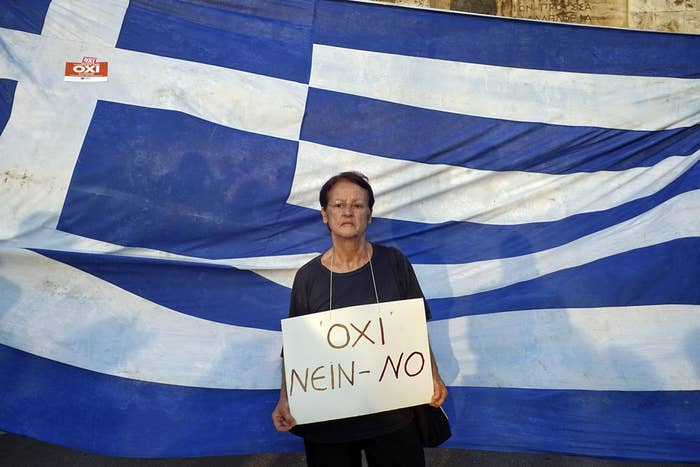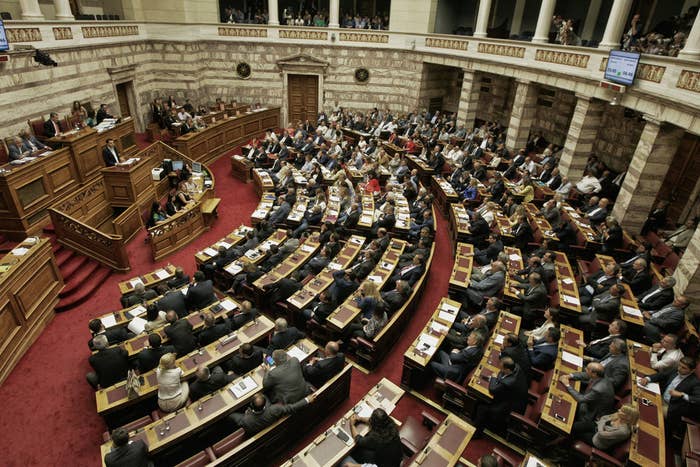Greeks rejected a series of proposals from Greece's lenders on Sunday in a 61%–39% vote, throwing into further chaos the status of negotiations over the funding Greece desperately needs to keep from basically going bankrupt.

Ahead of a June 30 deadline, the International Monetary Fund, the European Commission, and the European Central Bank offered up a set of proposals that Greece would have had to agree to in order to the receive $8.1 billion in loans it needs to stay solvent.


Following the global financial crisis of 2008, the three lending bodies — often referred to as the "troika" — have provided Greece with 220 billion euros in loans over the last five years. Most of that, however, has gone towards repaying Greece's previous loans and public spending.
In response, the government announced that it would put the proposals before the Greek people, calling for a referendum vote — the first since the country abolished the monarchy in 1974.

Here's the ballot itself in Greek, which Greek citizens could vote "Yes" or "No" on:

Should the draft agreement submitted by the EC, ECB, IMF to the eurogroup on June 25, which consists of two parts that make up their full proposal, be accepted? The first document is titled 'Reforms for the completion of the current programme and beyond' and the second, 'Preliminary debt sustainability analysis'
Do you think that the thing the European Union, the European Central Bank, and the International Monetary Fund suggested on June 25 should be a thing that we accept? It's full of a bunch of things we have to do, like more spending cuts (i.e. austerity) and whatnot in order to get more money in order for us to not be totally broke.
The result is a major win for Greek Prime Minister Alexis Tsipras — leader of the left-wing Syriza coalition — who had campaigned hard for people to reject the proposal.

The outcome is a victory for Greeks who believed that the banks and lenders had set a set of terms too harsh for Greece to accept. What this means for negotiations over Greece's fiscal future, however, remains unclear.

The result is also sure to increase chatter about just what a Greek exit from the euro (or "Grexit") would mean. (As of now, nobody knows what it would mean for the euro, let alone global markets.)

This is what The Guardian has predicted would happen, though, and it isn't pretty:
Overnight, banks would become insolvent, the economy's productivity would drop precipitously and hyperinflation would explode as the reintroduced drachma devalued overnight. Some suggest social unrest would likely erupt with borders being closed to stop hard currency fleeing. The price of imports would skyrocket.
Political turmoil could follow and the far left and far right – both of which have endorsed the no vote – would feel strengthened. Leftwingers in Syriza, trade unions and workers' associations, backed by the anti-capitalist Antarsya, have long advocated a split from the EU and the write-off of Greece's monumental debt.
